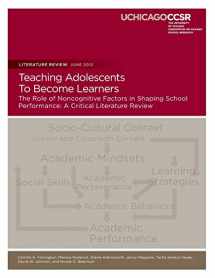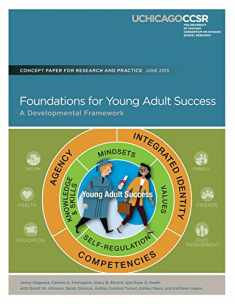
Teaching Adolescents To Become Learners The Role of Noncognitive Factors in Shaping School Performance: A Critical Literature Review
Book details
Summary
Description
"Teaching Adolescents To Become Learners" summarizes the research on five categories of noncognitive factors that are related to academic performance: academic behaviors, academic perseverance, academic mindsets, learning strategies, and social skills, and proposes a framework for thinking about how these factors interact to affect academic performance, and what the relationship is between noncognitive factors and classroom/school context, as well as the larger socio-cultural context. It examines whether there is substantial evidence that noncognitive factors matter for students' long-term success, clarifying how and why these factors matter, determining if these factors are malleable and responsive to context, determining if they play a role in persistent racial/ethnic or gender gaps in academic achievement, and illuminating how educators might best support the development of important noncognitive factors within their schools and classrooms. The review suggests some promising levers for change at the classroom level, and challenges the notion that hard work and effort are character traits of individual students, instead suggesting that the amount of effort a student puts into academic work can depend, in large part, on instructional and contextual factors in the classroom. In addition, the review also presents challenges for future research on noncognitive factors. This work was supported by Raikes Foundation and Lumina Foundation.


We would LOVE it if you could help us and other readers by reviewing the book
Book review




